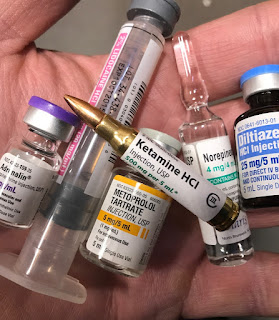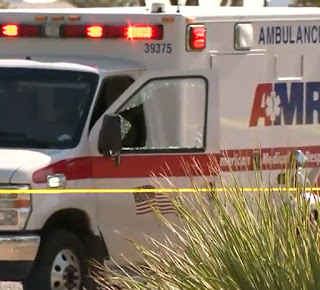Falling in love
I'd like you to think back to your first love and the first time
that you had your heart broken. (If you haven't had your heart broken, you'll
have to use your imagination - and I posit that your experience of life is yet
incomplete)! You were probably angry, or sad, or confused, or some combination
of the three. Depending on how bad you got it, you may have stayed up all night
thinking about the guy or girl who stomped on your heart. You probably didn't
get much done that day and maybe for the few days afterwards. Basically
somebody threw a wrench into your life plans.
Expectations are a huge part of life and when someone or
something fails to meet our expectations frustration and anger are the direct
result. When we fall in love and expect to be happy and content, the loss
of that love object destroys those expectations. That is why it hurts.
But falling in love doesn't happen only between two people. You
can fall in love with ideas and thoughts, too. One of the great failures of EMS recruitment and retention is the fact that we tell would-be providers that they're going to "save lives." They begin to expect the glamour and the glory of being a hero - and they DO become heroes, but not in the sense that they imagined. They wait for that shooting or cardiac arrest, failing to see the forest for the trees - the truth that in merely HELPING OTHERS, we are all heroes. They become burned out because they fell in love with the idea of the glamour.
In EMS we can also fall in love with our diagnoses and with the interventions that we are planning to perform. I recently had the opportunity to sit through a tremendous lecture by Dr. Terrence Burns, a local anesthesiologist who specialized in trauma for many years and also began his career as a professional firefighter. He is a gifted clinician who has an intimate understanding of airway control both in the OR and on the streets.
In EMS we can also fall in love with our diagnoses and with the interventions that we are planning to perform. I recently had the opportunity to sit through a tremendous lecture by Dr. Terrence Burns, a local anesthesiologist who specialized in trauma for many years and also began his career as a professional firefighter. He is a gifted clinician who has an intimate understanding of airway control both in the OR and on the streets.
Dr. Burns kept returning to a theme throughout his presentation: "Don't fall in love with your first idea." We have a
lot of choices on how we can ventilate our patients, but ultimately ventilation itself is the most important part of airway control. Whether we
use an OPA, a King airway, a Combitube, or an endotracheal tube, the point is
to clear the airway and make air go in and out. Why should you not fall in love
with your first idea? The answer is simple. If your first idea breaks up with
you it ruins your day. It knocks you off your game.
You know you have done it. We all have. You walked into a cardiac arrest
situation, established an IV, placed the patient on the cardiac monitor, and
delivered a shock. Medications were pushed while you assured that quality CPR was happening, and you moved your way up to the
head for the final performance: "The Tube."
Everybody was clearly impressed with your prowess up to that
point and you confidently began your laryngoscopy. You peered down that throat
looking for the pearly white gates… and you didn't see them. More BVM, a few
knuckle cracks and you were back at the plate staring down that pitcher. And
again you were thwarted. Maybe there was an anatomical anomaly or perhaps the
patient was obese with a very anterior larynx. Regardless of the circumstance,
you only get two strikes in an intubation and you struck out.
You were annoyed. Disappointed in yourself. You may have even
been really pissed off. And at that moment your call took a little bit of a
turn for the worse. You couldn't stop thinking about the tube. That
damned tube. That tube who broke up with you two days before Valentine's Day. Who went to
the prom with somebody else! And while you dealt with the loss of your first
love, your drug pushes came at intervals a little longer than they should have.
You missed the patient going back into VF for 15 or 20 seconds while you were
pondering whether you could try that tube again. You lost track of time and in
general had a fairly mediocre performance for the remainder of the call. The King Airway beckoned you from the bag, but you didn't think about it because you couldn't get over that tube. You tried a third time out in the truck. It was a mess. What happened? You fell in love with the idea of intubation and it broke your heart.
EMS is all about adaptation. We're not in a clean, clinical setting with all of our equipment in neat little drawers. We're in variable settings with variable light. Variable safety. Variable help. We need to be able to adapt. If we can't we won't last very long. Airway control, like Dr. Burns says, is about ventilation. Sometimes the tube is the best bet. Sometimes it's a supraglottic. And sometimes the BLS airway is the best option for us. If you don't fall in love, you have options. You're a "playa!"
Diagnosis is another thing we can fall in love with. The patient has a history of COPD and you've treated him before. He's wheezing and short of breath so you start the duoneb and mag sulfate. But he gets worse. His pressure is high, but you know he's COPD. You give solumedrol, and the patient continues to decline. It isn't until you get to the hospital that you finally realize the patient is in CHF, and the nitrates are still tucked safely away in your drug bag.
As clinicians, especially as paramedics who are frequently the only advanced clinical provider treating a patient for 45 to 60 minutes, we can't afford to be myopic. We need to see all of the possibilities, accept all possibilities, and even question ourselves when we think we know what's going on. As soon as we gaze longingly into the eyes of our treatment plan, we lose sight of everything else. And when that treatment plan calls us up and dumps us the week before Christmas, we often surrender our focus.
So don't fall in love in the field. EMS relationships are always a mess anyhow!
As clinicians, especially as paramedics who are frequently the only advanced clinical provider treating a patient for 45 to 60 minutes, we can't afford to be myopic. We need to see all of the possibilities, accept all possibilities, and even question ourselves when we think we know what's going on. As soon as we gaze longingly into the eyes of our treatment plan, we lose sight of everything else. And when that treatment plan calls us up and dumps us the week before Christmas, we often surrender our focus.
So don't fall in love in the field. EMS relationships are always a mess anyhow!


Comments
Post a Comment